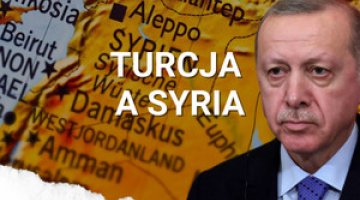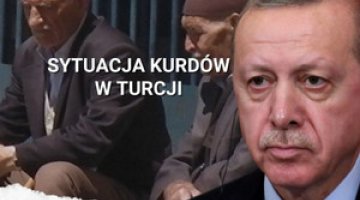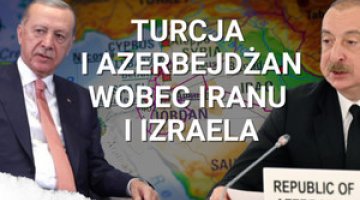Turkey’s political scene ahead of the parliamentary election
Elections to parliament will be held in Turkey on 7 June. The Justice and Development Party (AKP), which has ruled the country for twelve years, is the unquestioned front-runner. However, the AKP and President Recep Tayyip Erdoğan, who supports it, hope to win a majority that will allow them to pass a new constitution which would put a presidential system in place in Turkey and sanction Erdoğan’s dominant role on the domestic political scene. Success in this will depend above all on whether the AKP will manage to significantly expand its electorate and on the results achieved by the other parties, especially the Kurdish left-wing Peoples’ Democratic Party (HDP). The outcome of the election will determine the future shape of Turkey’s political system and the socio-political situation in the country.
The high stakes in the election have made the rivalry between the AKP and the other parties especially bitter, have stimulated tensions inside Turkey and aggravated social divides. Contenders view the election as a battle which will decide the future shape of Turkey and its political system. However, the election is rather unlikely to ease these tensions. On the contrary, there is a big risk that Turkey will enter a period of intensified political struggle and social destabilisation following the election.
The key players
The AKP is the front-runner in the opinion polls, and is likely to rule the country for a fourth successive term (according to Metropoll, it may garner 42% of the vote). However, it is unlikely to maintain support at its previous level (49% of voters backed the AKP in the election in 2011), especially given the fact that its support levels have been falling over the past few months. This was due to the deterioration of the economic situation (slower GDP growth, a significant fall in the value of the currency, increasing debt levels among Turkish citizens and falling foreign trade) and also due to widespread disapproval of the key proposal of the AKP and Erdoğan, i.e. the introduction of the presidential system. The party has noticeably lost support from the conservative Kurdish population who are disillusioned by the lack of progress in the peace process. Another important factor is the generation change within the AKP and the related absence of around 70 leading activists on party lists. This is an effect of internal party regulations, according to which a member may not seek election to parliament more than three times in a row. Since young politicians, with no position, have replaced seasoned party activists on AKP lists, Erdoğan’s control of the party will become even stronger.
The Republican People’s Party (CHP), the key opposition grouping with an estimated support level of 27% (Metropoll), is the second strongest party. It draws upon the Kemalist republic slogans and traditionally balances between nationalist and left-wing rhetoric (veering towards the use of more left-wing slogans over the past few months). The Nationalist Movement Party (MHP) is predicted to receive17% of the vote (according to Metropoll). The main shortcoming of these two parties is that they lack a charismatic leader and a comprehensive program which could compete with the AKP’s vision and would be appealing to the conservative majority of the population and to the 10 to 20 million strong Kurdish minority. The CHP and the MHP thus have no other choice but to divide among themselves the part of the electorate who are dissatisfied with the AKP’s rule and are attached to the idea of a secular state.
The People’s Democratic Party (HDP) will likely tip the balance on the political scene. It originates from the Kurdish party BDP, but has been making efforts to win the support of the left-wing electorate. This grouping has given up its previous tactic of nominating independent candidates and has decided to compete in the election as a party. If the HDP crosses the 10% threshold, its presence in parliament would increase significantly (according to Metropoll, the HDP is polling 9%). Should this scenario come to be, given the rules applicable in Turkish voting laws, the HDP would significantly reduce the number of the AKP’s seats and might even force it to form a coalition.
The stake in the election
What is at stake in the case of this election is the shape of Turkey’s political system, and in particular how strong President Erdoğan’s dominance on the domestic scene will be. If the AKP achieves a constitutional majority (360 out of 550 seats) or a majority which will allow it to hold a referendum concerning the constitution (330 seats), an attempt is likely to be made to adopt a new constitution introducing a presidential system (it cannot be ruled out that, should the AKP achieve a worse result, it may try to co-opt the HDP into these moves). This would entrench Erdoğan’s dominant position, since his official prerogatives so far have mainly been restricted to ceremonial issues. He has compensated for the lack of formal competences with his personal influence in the party, the cabinet and in other institutions where his loyal aides play key roles. The new constitution would formalise this system, protect Erdoğan from the AKP’s attempts to free itself from him (the first signs of this have already been seen) and additionally to strengthen his control over the state. Erdoğan and the AKP view this as a key stage in building a ‘New Turkey’, the flagship project of the government party envisaging a thorough reconstruction of the state, society and Turkish identity on the basis of the AKP’s ideological guidelines.
The opposition and around half of the Turkish public who dislike the AKP see this scenario as the road to dictatorship for Erdoğan. Considering the level of determination shown by the president and the AKP to push through the new constitution, and the opposition’s resolve to torpedo their efforts, the election is likely to bring an intensified political struggle and public destabilisation.
Another aspect that will have an impact on the future form of the Turkish political scene will be the electoral result of the Kurdish HDP. If this party makes it to the parliament, Kurds would gain significantly more influence on the country’s political life. It cannot be ruled out that this would also give them the opportunity to participate in the work on the new constitution, and they would probably attempt to use this to set up their cultural and political autonomy. However, a possible defeat would mean the main representative of Kurdish interests would be eliminated from Turkey’s political scene (they would also lose their independent deputies). Should this scenario play out, they would have to act outside the system (some share the opinion within Kurdish circles that an alternative parliament in Diyarbakir should be established), and groups of Kurds would probably resume armed anti-state activity. Kurds view the voting regulations, and in particular the high 10% threshold, as a sign of discrimination. It is therefore very likely that they would not accept a defeat. Furthermore, they are increasingly disappointed with the lack of tangible results of the peace process launched in 2013.
The volatile election campaign
The way the campaign has been held raises the risk of destabilisation in the country after the election. Mutual stigmatisation seems to prevail over competing on electoral manifestos. The governing AKP party has embarked on an aggressive campaign, presenting opposition groupings as terrorist organisations in the service of foreign forces. It has also made use of religious and nationalist rhetoric for this. Although officially the president may not support any party, Erdoğan is taking an active part in the campaign. The government team has been strongly supported by the pro-government media, which predominate in Turkey and which offer incomparably more space to promoting the AKP than to the campaign of the opposition parties.
The president’s authoritarian and chieftain style is provoking ever stronger resistance among almost all those who do not support the AKP. These circles view the possible concentration of power in his hands as an existential threat.
All this stimulates tension and mutual enmity between the political circles and among the Turkish public. One clear sign of this is the escalation of political violence seen over the past few weeks, including numerous attacks on candidates (of all parties, however, more on opposition candidates) and their offices; some candidates were killed.
Possible developments
The election result will have a great impact on the form Turkey’s political scene and system take in the future. The risk of internal destabilisation is likely in each scenario. The possible success of the AKP is likely to provoke strong resistance to the excessive concentration of power in Erdoğan’s hands, who is more and more often viewed by his political opponents as a dictator. In turn, a defeat will be unacceptable to the government camp, who will most likely make efforts to push through their proposals regardless of the election result. Furthermore, the AKP itself is undergoing an evolution and faces the risk of internal tension – whether in connection with the generation change or due to the government’s possible unwillingness to relinquish part of its prerogatives to the president. The result achieved by HDP will also be important. Electoral defeat of this party might provoke dissatisfaction among Kurds and even encourage them to resume their armed struggle.
The level of the government’s determination to achieve its goal and the tendency towards authoritarianism observed thus far is raising doubts as to whether the rules and spirit of democracy will be respected during the election. Therefore, should the AKP achieve a spectacular victory, the opposition circles will most probably question the election results.
Appendix
Key political parties in Turkey
|
|
Profile |
Leader |
Number of seats in parliament (out of 550) |
Result in the parliamentary election in 2011 (%) |
Support according to Metropoll’s survey (%) |
|
Justice and Development Party, AKP |
A conservative party. Has ruled the country since 2002. President Recep Tayyip Erdoğan originates from the AKP. |
Formally, Ahmet Davutoğlu (since 2014), but in practice Recep Tayyip Erdoğan |
312 |
49.83 |
42.8 |
|
Republican People’s Party, CHP |
Propagates the ideals of the secular Kemalist republic, combining nationalist and left-wing slogans. Turkey’s oldest party |
Kemal Kılıçdaroğlu |
125 |
25.98 |
27 |
|
Nationalist Movement Party, MHP |
Radically nationalist party |
Devlet Bahçeli |
52 |
13 |
17 |
|
People’s Democratic Party, HDP |
Represents mainly the interests of the Kurdish minority. It also promotes left-wing values |
Selahattin Demirtaş, Figen Yüksekdağ |
29 |
The present members of HDP sought election as independent candidates |
9.2 |




